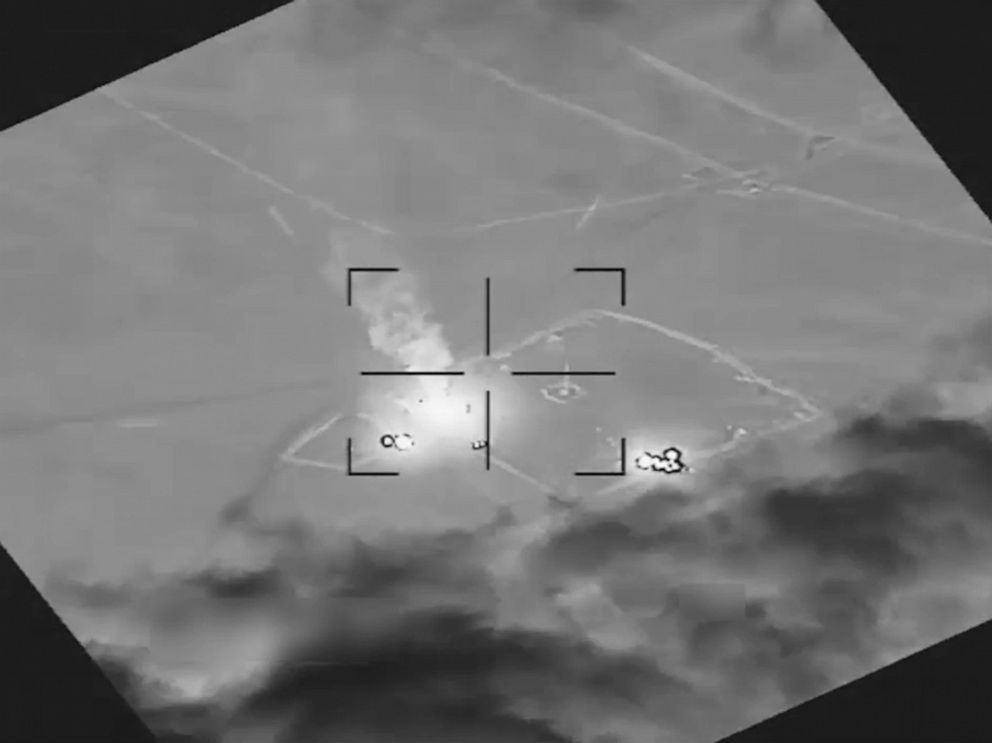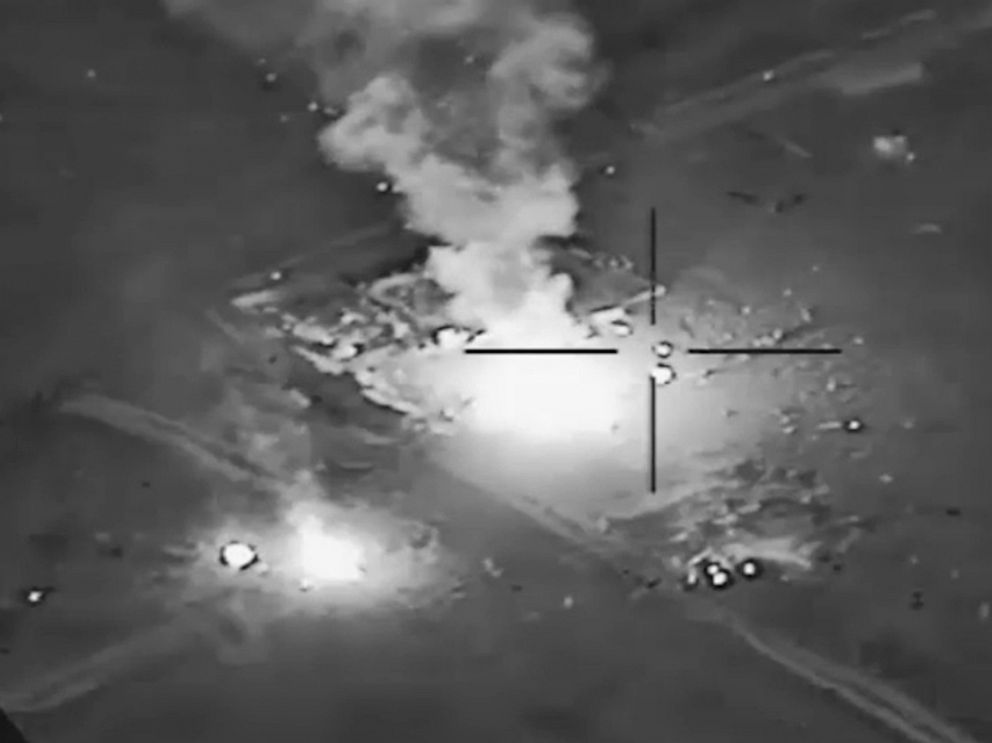Video shows aftermath of US strike on Iran-backed group in Iraq amid concerns violence could escalate
The U.S. conducted strikes against five facilities in Iraq and Syria on Sunday.
Aerial footage released by the Pentagon showed the aftermath of at least one of the American strikes on an Iranian-backed group operating in Iraq over the weekend, as concern grew Monday that violence against American troops could escalate.
But asked about concerns over the threat of retaliation by Iran or its proxies, a senior State Department official told reporters on Monday, "We don't have any fears."
On Sunday, U.S. F-15s conducted strikes against five facilities in Iraq and Syria tied to Kata'ib Hizbollah (KH), which the Pentagon described as a group linked to Iran's Quds Force responsible for recent attacks in Iraq, including Friday's rocket attack at the K1 Iraqi military base near Kirkuk that killed a U.S. civilian contractor and injured several American and Iraqi forces.
In the aftermath of the strikes, a top Iraqi militia chief warned that there will be a strong response against the U.S.

"The blood of the martyrs will not be in vain and our response will be very tough on the American forces in Iraq," senior commander Jamal Jaafar Ibrahimi of Iraq’s Popular Mobilization Forces said late on Sunday, according to Reuters.
On Monday, Iran's state-run news agency said that Iran's Islamic Revolutionary Guard Corps (IRGC) had seized a commercial vessel with 16 Malaysian crew members on board for allegedly smuggling fuel in the Persian Gulf.
The U.S. strikes over the weekend targeted KH weapon storage facilities as well as command and control locations the group used to plan and execute attacks on U.S. and coalition troops, said chief Pentagon spokesperson Jonathan Hoffman in a statement on Sunday.
"KH has a strong linkage with Iran's Quds Force and has repeatedly received lethal aid and other support from Iran that it has used to attack [Operation Inherent Resolve] coalition forces," Hoffman said.

Secretary of State Mike Pompeo seemed to implicate Iran's IRGC general Qasem Soleimani and Ayatollah Khamenei directly in the Friday attack, accusing them of "working to expand their terror campaign all around the world."
"They took a strike at an American facility," Pompeo told "Fox and Friends" Monday morning.
ABC News Contributor and former Deputy Assistant Secretary of Defense for the Middle East Mick Mulroy said that Iran's decision to use KH in the Friday attack sent the message that it wanted the attack to be successful because KH militants are trained specifically by Quds Force officers.
"It's the thinnest veil Iran could have used," Mulroy said. "KH has the most direction not just from Iran but Iranian leadership."
While senior State Department officials declined to say whether Iran directly ordered the Friday attack, one official called it a "feature" of Iran's "expansionist foreign policy to conduct deniable attacks," saying the administration will not give Iran that "fiction of deniability."
Pompeo, along with Defense Secretary Mark Esper and Chairman of the Joint Chiefs of Staff Gen. Mark Milley, briefed President Donald Trump on the strikes at the president's Mar-a-Lago club in Palm Beach, Florida, Sunday evening.
Speaking to reporters that night, Pompeo said the strikes made clear that the administration "will not stand for" Iranian actions that put American lives at risk -- a statement echoed by senior State Department officials.
"We are not looking for any conflict in the Middle East," one official said. "These were defensive strikes, but we are not going to let Iran get away with using a proxy force to attack American interests, and we will hold Iran accountable for these attacks."
Meanwhile, the Iraqi government said on Monday that the strikes will force them to review their relationship with the U.S.-led coalition.
The senior State Department officials expressed disappointment with the Iraqi government's response to the recent provocations amid vocal concerns from U.S. officials about the attacks on bases that host American and coalition forces. One official said there have been 11 such attacks in the last two months alone, while the second official said the U.S. had told the Iraqi government it would "take action against this particular attack."




